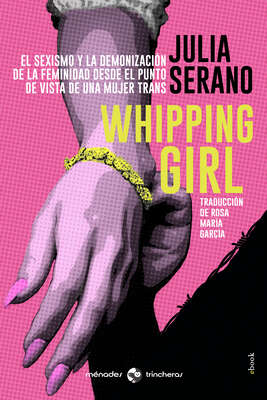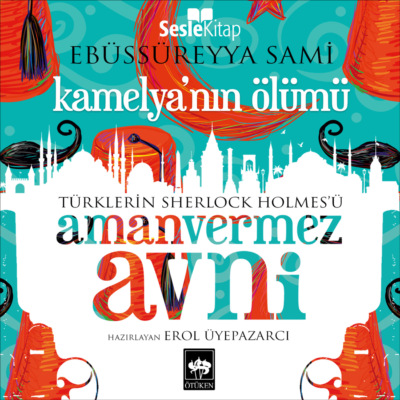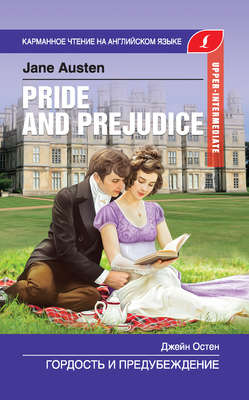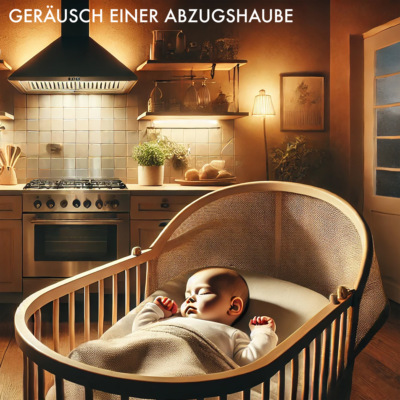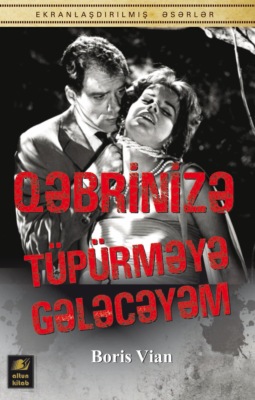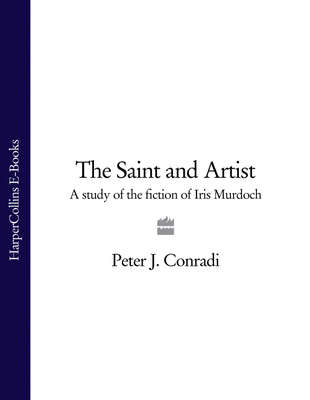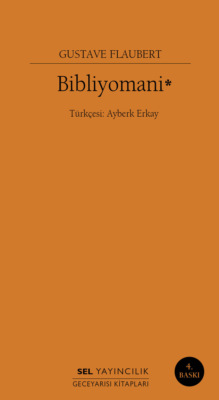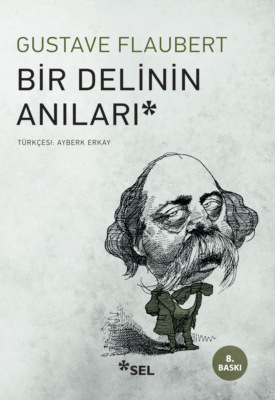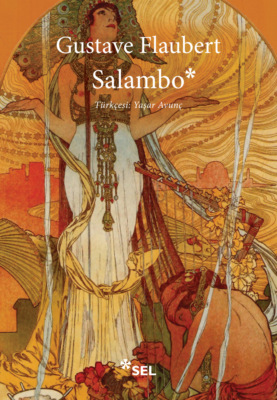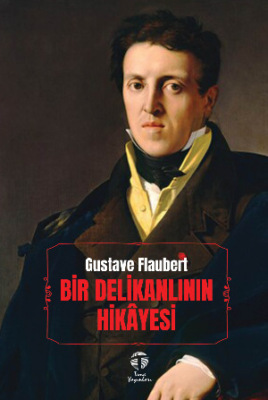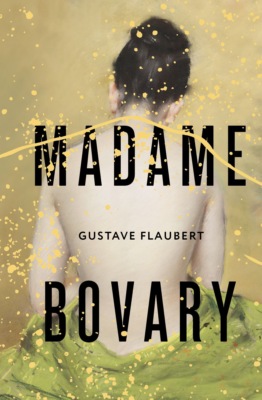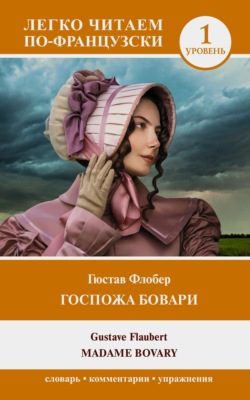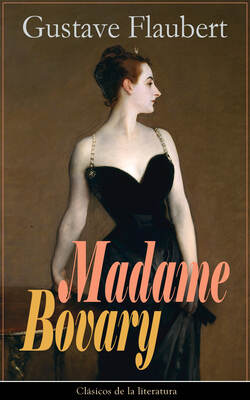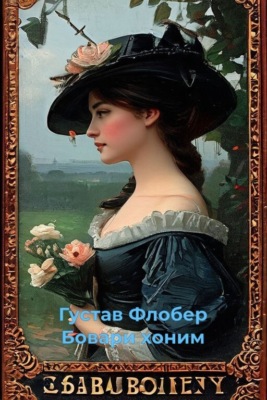Kitabı oku: «Madame Bovary», sayfa 2
CHAPTER 2
One night towards eleven o’clock they were awakened by the noise of a horse pulling up outside their door. The servant opened the garret-window and parleyed for some time with a man in the street below. He came for the doctor, had a letter for him. Natasie came downstairs shivering and undid the bars and bolts one after the other. The man left his horse, and, following the servant, suddenly came in behind her. He pulled out from his wool cap with grey top-knots a letter wrapped up in a rag and presented it gingerly to Charles, who rested on his elbow on the pillow to read it. Natasie, standing near the bed, held the light. Madame in modesty had turned to the wall and showed only her back.
This letter, sealed with a small seal in blue wax, begged Monsieur Bovary to come immediately to the farm of Les Bertaux to set a broken leg. Now from Tostes to Les Bertaux was a good eighteen miles across country by way of Longueville and Saint-Victor. It was a dark night; Madame Bovary junior was afraid of accidents for her husband. So it was decided the stable-boy should go on first; Charles would start three hours later when the moon rose. A boy was to be sent to meet him, and show him the way to the farm, and open the gates for him.
Towards four o’clock in the morning, Charles, well wrapped up in his cloak, set out for Les Bertaux. Still sleepy from the warmth of his bed, he let himself be lulled by the quiet trot of his horse. When it stopped of its own accord in front of those holes surrounded with thorns that are dug on the margin of furrows, Charles awoke with a start, suddenly remembered the broken leg, and tried to call to mind all the fractures he knew. The rain had stopped, day was breaking, and on the branches of the leafless trees birds roosted motionless, their little feathers bristling in the cold morning wind. The flat country stretched as far as eye could see, and the tufts of trees round the farms at long intervals seemed like dark violet stains on the cast grey surface, that on the horizon faded into the gloom of the sky. Charles from time to time opened his eyes, his mind grew weary, and, sleep coming upon him, he soon fell into a doze wherein, his recent sensations blending with memories, he became conscious of a double self, at once student and married man, lying in his bed as but now, and crossing the operation theatre as of old. The warm smell of poultices mingled in his brain with the fresh odour of dew; he heard the iron rings rattling along the curtain-rods of the bed and saw his wife sleeping. As he passed Vassonville he came upon a boy sitting on the grass at the edge of a ditch.
“Are you the doctor?” asked the child.
And on Charles’s answer he took his wooden shoes in his hands and ran on in front of him.
The general practitioner, riding along, gathered from his guide’s talk that Monsieur Rouault must be one of the well-to-do farmers. He had broken his leg the evening before on his way home from a Twelfth-night feast at a neighbour’s. His wife had been dead for two years. There was with him only his daughter, who helped him to keep house.
The ruts were becoming deeper; they were approaching Les Bertaux. The little lad, slipping through a hole in the hedge, disappeared; then he came back to the end of a courtyard to open the gate. The horse slipped on the wet grass; Charles had to stoop to pass under the branches. The watchdogs in their kennels barked, dragging at their chains. As he entered Les Bertaux, the horse took fright and stumbled.
It was a substantial-looking farm. In the stables, over the top of the open doors, one could see great cart-horses quietly feeding from new racks. Right along the outbuildings extended a large dunghill, from which manure liquid oozed, while amidst fowls and turkeys, five or six peacocks, a luxury in Chauchois farmyards, were foraging on the top of it. The sheepfold was long, the barn high, with walls smooth as your hand. Under the cart-shed were two large carts and four ploughs, with their whips, shafts and harnesses complete, whose fleeces of blue wool were getting soiled by the fine dust that fell from the granaries. The courtyard sloped upwards, planted with trees set out symmetrically, and the chattering noise of a flock of geese was heard near the pond.
A young woman in a blue merino dress with three flounces came to the threshold of the door to receive Monsieur Bovary, whom she led to the kitchen, where a large fire was blazing. The servant’s breakfast was boiling beside it in small pots of all sizes. Some damp clothes were drying inside the chimney-corner. The shovel, tongs, and the nozzle of the bellows, all of colossal size, shone like polished steel, while along the walls hung many pots and pans in which the clear flame of the hearth, mingling with the first rays of the sun coming in through the window, was mirrored fitfully.
Charles went up the first floor to see the patient. He found him in his bed, sweating under his bed-clothes, having thrown his cotton nightcap right away from him. He was a fat little man of fifty, with white skin and blue eyes, the forepart of his head bald, and he wore earrings. By his side on a chair stood a large decanter of brandy, whence he poured himself a little from time to time to keep up his spirits; but as soon as he caught sight of the doctor his elation subsided, and instead of swearing, as he had been doing for the last twelve hours, began to groan freely.
The fracture was a simple one, without any kind of complication. Charles could not have hoped for an easier case. Then calling to mind the devices of his masters at the bedsides of patients, he comforted the sufferer with all sorts of kindly remarks, those caresses of the surgeon that are like the oil they put on bistouries. In order to make some splints a bundle of laths was brought up from the cart-house. Charles selected one, cut it into two pieces and planed it with a fragment of windowpane, while the servant tore up sheets to make bandages, and Mademoiselle Emma tried to sew some pads. As she was a long time before she found her work-case, her father grew impatient; she did not answer, but as she sewed she pricked her fingers, which she then put to her mouth to suck them. Charles was surprised at the whiteness of her nails. They were shiny, delicate at the tips, more polished than the ivory of Dieppe, and almond-shaped. Yet her hand was not beautiful, perhaps not white enough, and a little hard at the knuckles; besides, it was too long, with no soft inflections in the outlines. Her real beauty was in her eyes. Although brown, they seemed black because of the lashes, and her look came at you frankly, with a candid boldness.
The bandaging over, the doctor was invited by Monsieur Rouault himself to “have a bite” before he left.
Charles went down into the room on the ground floor. Knives and forks and silver goblets were laid for two on a little table at the foot of a huge bed that had a canopy of printed cotton with figures representing Turks. There was an odour of iris-root and damp sheets that escaped from a large oak chest opposite the window. On the floor in corners were sacks of flour stuck upright in rows. These were the overflow from the neighbouring granary, to which three stone steps led. By way of decoration for the apartment, hanging to a nail in the middle of the wall, whose green paint scaled off from the effects of the saltpetre, was a crayon head of Minerva in a gold frame, underneath which was written in Gothic letters “To dear Papa.”
First they spoke of the patient, then of the weather, of the great cold, of the wolves that infested the fields at night. Mademoiselle Rouault did not at all like the country, especially now that she had to look after the farm almost alone. As the room was chilly, she shivered as she ate. This showed something of her full lips, that she had a habit of biting when silent.
Her neck stood out from a white turned-down collar. Her hair, whose two black folds seemed each of a single piece, so smooth were they, was parted in the middle by a delicate line that curved slightly with the curve of the head; and, just showing the tip of the ear, it was joined behind in a thick chignon, with a wavy movement at the temples that the country doctor saw now for the first time in his life. The upper part of her cheek was rose-coloured. She had, like a man, thrust in between two buttons of her bodice, a tortoise-shell eyeglass.
When Charles, after bidding farewell to old Rouault, returned to the room before leaving, he found her standing, her forehead against the window, looking into the garden, where the beanpoles had been knocked down by the wind. She turned round.
“Are you looking for anything?” she asked.
“My whip, if you please,” he answered.
He began rummaging on the bed, behind the doors, under the chairs. It had fallen to the floor, between the sacks and the wall. Mademoiselle Emma saw it, and bent over the flour sacks. Charles out of politeness made a dash also, and as he stretched out his arm, at the same moment felt his breast brush against the back of the young girl bending beneath him. She drew herself up, scarlet, and looked at him over her shoulder as she handed him his whip.
Instead of returning to Les Bertaux in three days as he had promised, he went back the very next day, then regularly twice a week, without counting the visits he paid now and then as if by accident.
Everything, moreover, went well; the patient progressed favourably; and when, at the end of forty-six days, old Rouault was seen trying to walk alone in his “den,” Monsieur Bovary began to be looked upon as a man of great capacity. Old Rouault said that he could not have been cured better by the first doctor of Yvetot, or even of Rouen.
As to Charles, he did not stop to ask himself why it was a pleasure to him to go to Les Bertaux. Had he done so, he would, no doubt, have attributed his zeal to the importance of the case, or perhaps to the money he hoped to make by it. Was it for this, however, that his visits to the farm formed a delightful exception to the meagre occupations of his life? On these days he rose early, set off at a gallop, urging on his horse, then got down to wipe his boots in the grass and put on black gloves before entering. He liked going into the courtyard, and noticing the gate turn against his shoulder, the cock crow on the wall, the lads run to meet him. He liked the granary and the stables; he liked old Rouault, who pressed his hand and called him his saviour; he like the small wooden shoes of Mademoiselle Emma on the scoured flags of the kitchen—her high heels made her a little taller; and when she walked in front of him, the wooden soles springing up quickly struck with a sharp sound against the leather of her boots.
She always accompanied him to the first step of the stairs. When his horse had not yet been brought round she stayed there. They had said “Good-bye”; there was no more talking. The open air wrapped her round, playing with the soft down on the back of her neck, or blew to and fro on her hips the apron-strings, that fluttered like streamers. Once, during a thaw the bark of the trees in the yard was oozing, the snow on the roofs of the outbuildings was melting; she stood on the threshold, and went to fetch her sunshade and opened it. The sunshade of silk of the colour of pigeons’ breasts, through which the sun shone, lighted up with shifting hues the white skin of her face. She smiled under the tender warmth, and drops of water could be heard falling one by one on the stretched silk.
During the first period of Charles’s visits to Les Bertaux, Madame Bovary junior never failed to inquire after the invalid, and she had even chosen in the book that she kept on a system of double entry, a clean blank page for Monsieur Rouault. But when she heard he had a daughter, she began to make inquiries, and she learnt the Mademoiselle Rouault, brought up at the Ursuline Convent, had received what is called “a good education”; and so knew dancing, geography, drawing, how to embroider and play the piano. That was the last straw.
“So it is for this,” she said to herself, “that his face beams when he goes to see her, and that he puts on his new waistcoat at the risk of spoiling it with the rain. Ah! that woman! That woman!”
And she detested her instinctively. At first she solaced herself by allusions that Charles did not understand, then by casual observations that he let pass for fear of a storm, finally by open apostrophes to which he knew not what to answer. “Why did he go back to Les Bertaux now that Monsieur Rouault was cured and that these folks hadn’t paid yet? Ah! it was because a young lady was there, some one who knew how to talk, to embroider, to be witty. That was what he cared about; he wanted young ladies.” And she went on—
“The daughter of old Rouault a young lady! Get out! The grandfather was a shepherd, and they have a cousin who was almost had up at the assizes for a nasty blow in a quarrel. It is not worth while making such a fuss, or showing herself at church on Sundays in a silk gown like a countess. Besides, the poor old chap, if it hadn’t been for the colza last year, would have had much ado to pay up his arrears.”
For very weariness Charles left off going to Les Bertaux. Heloise made him swear, his hand on the prayer-book, that he would go there no more after much sobbing and many kisses, in a great outburst of love. He obeyed then, but the strength of his desire protested against the servility of his conduct; and he thought, with a kind of naive hypocrisy, that his interdict to see her gave him a sort of right to love her. And then the widow was thin; she had long teeth; wore in all weathers a little black shawl, the edge of which hung down between her shoulder-blades; her bony figure was sheathed in her clothes as if they were a scabbard; they were too short, and displayed her ankles with the laces of her large boots crossed over grey stockings.
Charles’s mother came to see them from time to time, but after a few days the daughter-in-law seemed to put her own edge on her, and then, like two knives, they scarified him with their reflections and observations. It was wrong of him to eat so much. Why did he always offer a glass of something to everyone who came? What obstinacy not to wear flannels! In the spring it came about that a notary at Ingouville, the holder of the widow Dubuc’s property, one fine day went off, taking with him all the money in his office. Heloise, it is true, still possessed, besides a share in a boat valued at six thousand francs, her house in the Rue St. Francois; and yet, with all this fortune that had been so trumpeted abroad, nothing, excepting perhaps a little furniture and a few clothes, had appeared in the household. The matter had to be gone into. The house at Dieppe was found to be eaten up with mortgages to its foundations; what she had placed with the notary God only knew, and her share in the boat did not exceed one thousand crowns. She had lied, the good lady! In his exasperation, Monsieur Bovary the elder, smashing a chair on the flags, accused his wife of having caused misfortune to the son by harnessing him to such a harridan, whose harness wasn’t worth her hide. They came to Tostes. Explanations followed. There were scenes. Heloise in tears, throwing her arms about her husband, implored him to defend her from his parents. Charles tried to speak up for her. They grew angry and left the house.
But “the blow had struck home.” A week after, as she was hanging up some washing in her yard, she was seized with a spitting of blood, and the next day, while Charles had his back turned to her drawing the window-curtain, she said, “O God!” gave a sigh and fainted. She was dead! What a surprise!
When all was over at the cemetery Charles went home. He found no one downstairs; he went up to the first floor to their room; saw her dress still hanging at the foot of the alcove; then, leaning against the writing-table, he stayed until the evening, buried in a sorrowful reverie. She had loved him after all!
CHAPTER 3
One morning old Rouault brought Charles the money for setting his leg—seventy-five francs in forty-sou pieces, and a turkey. He had heard of his loss, and consoled him as well as he could.
“I know what it is,” said he, clapping him on the shoulder; “I’ve been through it. When I lost my dear departed, I went into the fields to be quite alone. I fell at the foot of a tree; I cried; I called on God; I talked nonsense to Him. I wanted to be like the moles that I saw on the branches, their insides swarming with worms, dead, and an end of it. And when I thought that there were others at that very moment with their nice little wives holding them in their embrace, I struck great blows on the earth with my stick. I was pretty well mad with not eating; the very idea of going to a café disgusted me—you wouldn’t believe it. Well, quite softly, one day following another, a spring on a winter, and an autumn after a summer, this wore away, piece by piece, crumb by crumb; it passed away, it is gone, I should say it has sunk; for something always remains at the bottom as one would say—a weight here, at one’s heart. But since it is the lot of all of us, one must not give way altogether, and, because others have died, want to die too. You must pull yourself together, Monsieur Bovary. It will pass away. Come to see us; my daughter thinks of you now and again, d’ye know, and she says you are forgetting her. Spring will soon be here. We’ll have some rabbit-shooting in the warrens to amuse you a bit.”
Charles followed his advice. He went back to Les Bertaux. He found all as he had left it, that is to say, as it was five months ago. The pear trees were already in blossom, and Farmer Rouault, on his legs again, came and went, making the farm more full of life.
Thinking it his duty to heap the greatest attention upon the doctor because of his sad position, he begged him not to take his hat off, spoke to him in an undertone as if he had been ill, and even pretended to be angry because nothing rather lighter had been prepared for him than for the others, such as a little clotted cream or stewed pears. He told stories. Charles found himself laughing, but the remembrance of his wife suddenly coming back to him depressed him. Coffee was brought in; he thought no more about her.
He thought less of her as he grew accustomed to living alone. The new delight of independence soon made his loneliness bearable. He could now change his meal-times, go in or out without explanation, and when he was very tired stretch himself at full length on his bed. So he nursed and coddled himself and accepted the consolations that were offered him. On the other hand, the death of his wife had not served him ill in his business, since for a month people had been saying, “The poor young man! what a loss!” His name had been talked about, his practice had increased; and moreover, he could go to Les Bertaux just as he liked. He had an aimless hope, and was vaguely happy; he thought himself better looking as he brushed his whiskers before the looking-glass.
One day he got there about three o’clock. Everybody was in the fields. He went into the kitchen, but did not at once catch sight of Emma; the outside shutters were closed. Through the chinks of the wood, the sun sent across the flooring long fine rays that were broken at the corners of the furniture and trembled along the ceiling. Some flies on the table were crawling up the glasses that had been used, and buzzing as they drowned themselves in the dregs of the cider. The daylight that came in by the chimney made velvet of the soot at the back of the fireplace, and touched with blue the cold cinders. Between the window and the hearth Emma was sewing; she wore no fichu; he could see small drops of perspiration on her bare shoulders.
After the fashion of country folks she asked him to have something to drink. He said no; she insisted, and at last laughingly offered to have a glass of liqueur with him. So she went to fetch a bottle of curacao from the cupboard, reached down two small glasses, filled one to the brim, poured scarcely anything into the other, and, after having clinked glasses, carried hers to her mouth. As it was almost empty she bent back to drink, her head thrown back, her lips pouting, her neck tense. She laughed at getting none of it, while with the tip of her tongue passing between her small teeth she licked drop by drop the bottom of her glass.
She sat down again and took up her work, a white cotton stocking she was darning. She worked with her head bent down; she did not speak, nor did Charles. The air coming in under the door blew a little dust over the flags; he watched it drift along, and heard nothing but the throbbing in his head and the faint clucking of a hen that had laid an egg in the yard. Emma from time to time cooled her cheeks with the palms of her hands, and cooled these again on the knobs of the huge fire-dogs.
She complained of suffering since the beginning of the season from giddiness; she asked if sea-baths would do her any good; she began talking of her convent, Charles of his school; words came to them. They went up into her bedroom. She showed him her old music-books, the little prizes she had won, and the oak-leaf crowns, left at the bottom of a cupboard. She spoke to him, too, of her mother, of the country, and even showed him the bed in the garden where, on the first Friday of every month, she gathered flowers to put on her mother’s tomb. But the gardener they had never knew anything about it; servants are so stupid! She would have dearly liked, if only for the winter, to live in town, although the length of the fine days made the country perhaps even more wearisome in the summer. And, according to what she was saying, her voice was clear, sharp, or, on a sudden all languor, drawn out in modulations that ended almost in murmurs as she spoke to herself, now joyous, opening big naive eyes, then with her eyelids half closed, her look full of boredom, her thoughts wandering.
Going home at night, Charles went over her words one by one, trying to recall them, to fill out their sense, that he might piece out the life she had lived before he knew her. But he never saw her in his thoughts other than he had seen her the first time, or as he had just left her. Then he asked himself what would become of her—if she would be married, and to whom! Alas! Old Rouault was rich, and she!—so beautiful! But Emma’s face always rose before his eyes, and a monotone, like the humming of a top, sounded in his ears, “If you should marry after all! If you should marry!” At night he could not sleep; his throat was parched; he was thirsty. He got up to drink from the water-bottle and opened the window. The sky was covered with stars, a warm wind blowing in the distance; the dogs were barking. He turned his head towards Les Bertaux.
Thinking that, after all, he should lose nothing, Charles promised himself to ask her in marriage as soon as occasion offered, but each time such occasion did arise, the fear of not finding the right words sealed his lips.
Old Rouault would not have been sorry to be rid of his daughter, who was of no use to him in the house. In his heart he excused her, thinking her too clever for farming, a calling under the ban of Heaven, since one never saw a millionaire in it. Far from having made a fortune by it, the good man was losing every year; for if he was good in bargaining, in which he enjoyed the dodges of the trade, on the other hand, agriculture properly so called, and the internal management of the farm, suited him less than most people. He did not willingly take his hands out of his pockets, and did not spare expense in all that concerned himself, liking to eat well, to have good fires, and to sleep well. He liked old cider, underdone legs of mutton, glorias* well beaten up. He took his meals in the kitchen alone, opposite the fire, on a little table brought to him all ready laid as on the stage.
When, therefore, he perceived that Charles’s cheeks grew red if near his daughter, which meant that he would propose to her one of these days, he chewed the cud of the matter beforehand. He certainly thought him a little meagre, and not quite the son-in-law he would have liked, but he was said to be well brought-up, economical, very learned, and no doubt would not make too many difficulties about the dowry. Now, as old Rouault would soon be forced to sell twenty-two acres of “his property,” as he owed a good deal to the mason, to the harness-maker, and as the shaft of the cider-press wanted renewing, “If he asks for her,” he said to himself, “I’ll give her to him.”
At Michaelmas Charles went to spend three days at Les Bertaux. The last had passed like the others in procrastinating from hour to hour. Old Rouault was seeing him off; they were walking along the road full of ruts; they were about to part. This was the time. Charles gave himself as far as to the corner of the hedge, and at last, when past it—
“Monsieur Rouault,” he murmured, “I should like to say something to you.”
They stopped. Charles was silent.
“Well, tell me your story. Don’t I know all about it?” said old Rouault, laughing softly.
“Monsieur Rouault—Monsieur Rouault,” stammered Charles.
“I ask nothing better”, the farmer went on. “Although, no doubt, the little one is of my mind, still we must ask her opinion. So you get off—I’ll go back home. If it is ‘yes’, you needn’t return because of all the people about, and besides it would upset her too much. But so that you mayn’t be eating your heart, I’ll open wide the outer shutter of the window against the wall; you can see it from the back by leaning over the hedge.”
And he went off.
Charles fastened his horse to a tree; he ran into the road and waited. Half an hour passed, then he counted nineteen minutes by his watch. Suddenly a noise was heard against the wall; the shutter had been thrown back; the hook was still swinging.
The next day by nine o’clock he was at the farm. Emma blushed as he entered, and she gave a little forced laugh to keep herself in countenance. Old Rouault embraced his future son-in-law. The discussion of money matters was put off; moreover, there was plenty of time before them, as the marriage could not decently take place till Charles was out of mourning, that is to say, about the spring of the next year.
The winter passed waiting for this. Mademoiselle Rouault was busy with her trousseau. Part of it was ordered at Rouen, and she made herself chemises and nightcaps after fashion-plates that she borrowed. When Charles visited the farmer, the preparations for the wedding were talked over; they wondered in what room they should have dinner; they dreamed of the number of dishes that would be wanted, and what should be entrées.
Emma would, on the contrary, have preferred to have a midnight wedding with torches, but old Rouault could not understand such an idea. So there was a wedding at which forty-three persons were present, at which they remained sixteen hours at table, began again the next day, and to some extent on the days following.
*A mixture of coffee and spirits.
Ücretsiz ön izlemeyi tamamladınız.

